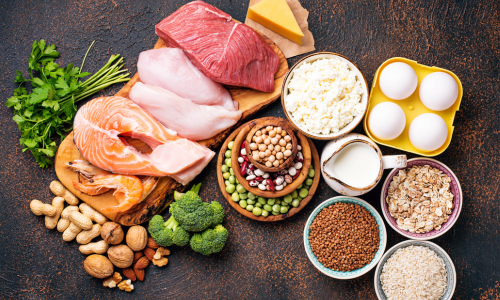
10 Nutrition Tips To Ease Cholesterol Woes

Simple dietary tips can keep your cholesterol levels in check and help prevent many health problems. Cholesterol is a waxy substance that the liver naturally produces and is also present in many animal products such as dairy, eggs and meat.
There are two types of cholesterol, the HDL or good cholesterol as it is beneficial for health. And there is also LDL or bad cholesterol, which can increase the risk of cardiovascular disease.
Here are some dietary tips for anyone with high cholesterol who needs help controlling it.
1. Add fibrous foods to meals
Soluble fiber is present in foods like legumes, beans, flax, citrus fruits and apples, and whole grains.
2. Include more fruits and veggies
Consuming more fruits and vegetables helps lower high cholesterol levels as they are rich in many antioxidants that can stop LDL from oxidizing. So, it prevents bad cholesterol from forming plaque in the arteries.
3. Replace saturated fats with unsaturated fats
The best sources of unsaturated fats are avocados, nuts, and fatty fish that are rich in omega-3s, which promote heart health and improve overall well-being.
4. Avoid trans fats
You must stay away from red meats and dairy foods that contain trans fats. These are made through hydrogenation, where unsaturated fats like vegetable oils undergo a change in structure, and they are mainly used by food makers and restaurants.
5. Consume more herbs and spices
These are considered to be nutritional powerhouses as they are excellent sources of antioxidants, minerals, and vitamins. Antioxidants stop LDLs from oxidizing and keep your blood cholesterol levels in check.
6. Say no to added sugars
This is among the most effective dietary tips for patients with high cholesterol as added sugars can heighten cholesterol levels and also harm overall health.
7. Opt for fatty fish
Adding fatty fish like salmon, mackerel, and tuna to your diet can provide you with omega-3 fatty acids, which increase good cholesterol levels in the bloodstream.
8. Switch to healthy oils
You can try and cook using sunflower oil, olive oil, sesame oil, and canola oil for several health benefits.
9. Reduce your sodium intake
Excess salt consumption will enhance the risk of hypertension. While cutting down on salt cannot directly bring down bad cholesterol levels, it can minimize the risk of heart diseases.
10. Alcohol
You should ideally avoid alcohol consumption as it contains too many calories and can lead to weight gain. This, in turn, increases the risk of cardiovascular problems because it elevates blood pressure.